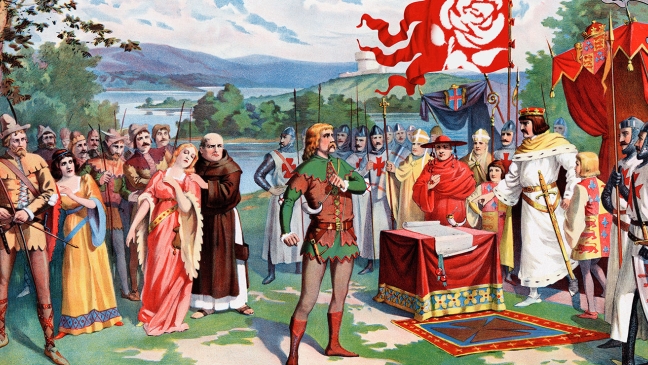Very few of the Labour Party’s proposed policies have “cut through” with the public, but leader Keir Starmer’s promise to remove the charitable status of independent schools and put VAT on their fees remains unchanged, even though many other policies have been abandoned altogether.
They, no doubt, think this is a vote winner and so intend to keep it - and retaining this policy would be understandable if it made fiscal sense. Unfortunately, it does not.
Labour claims the policy will raise approximately £1.7 billion, and that this extra money will go directly to funding state schools - perhaps, as Sam Freedman suggested on Tes, it could be used to fund the desperately needed improvements to thousands of schools.
A Robin Hood tax? Hardly
You can see why it is popular with party activists: not only does it promise more money for state schools (and who would oppose that?), but it also hits independent schools, a sector that is seen by many as privileged and protected by charitable law.
For Labour, this is a Robin Hood tax, which has very few downsides. Sadly, like Robin Hood, the reality is, at best, contested and, at worse, a myth.
As the recent research paper by the EDSK think tank found, charging VAT on school fees not only promises to raise far less money than Labour promises it will, but that the unintended consequences of such a policy could wipe out any new funds raised.
Political campaigning is rarely nuanced, but it is worth taking a moment to consider how flawed Labour’s maths is, not least because they are holding out false promises to state school parents and teachers that cannot be delivered. Both groups deserve better.
Bad sums and VAT windfalls
Firstly, their calculations are outdated, based as they are on a Fabian Society article published in 2011; secondly, the numbers of pupils in independent schools referred to in this article was, even then, incorrect as it included 50,000 pupils who were being educated in state schools.
The projection also included VAT on fees for nursery-aged children, even though nobody supports putting VAT on childcare for 2- to 4-year-olds.
Added to this is a (presumably) wilful misunderstanding of the sector: for boarding schools like Eton and Wellington, their accommodation is exempt from VAT, and so the money raised from the wealthiest of schools will be significantly lower than advertised.
Furthermore, independent schools are already preparing for a Labour government and looking at ways in which additional costs could be off-set: for example, parents could pay school fees way in advance to avoid incurring higher rates, and certain school assets could be ring-fenced in separate charities; additionally, these schools will reclaim any VAT incurred on capital projects over recent years.
Such actions could actually result in a windfall from HMRC for those schools that have spent a lot of money in recent years on new buildings.
Such consequences, entirely legal though they would be, would probably not be well received by voters who will feel they have been misled by ministers again.
The ripple effects
But there are other, perhaps more serious, unintended consequences. Not all independent schools are Eton and, in fact, most of them are working on very tight margins. Approximately half of the 1,400 ISC independent schools have fewer than 300 pupils and the typical fees are £15,000 per year, rather than the £40,000 that is often quoted.
Many of the parents who send their children to such schools are not the super rich, but often make huge sacrifices to pay fees, and often get support from grandparents. For some of these small independent schools outside the major cities, the loss of even a few pupils is financially disastrous.
What’s more, if they were to close or have to cut costs, the impact would not just be felt by that school but the wider economic area. Indeed, it is estimated that independent schools support over 300,000 jobs and in some rural areas they are the main employer. If they close, it won’t be just teachers out of a job but also cleaners, cooks and local butchers and builders.
Another issue that is overlooked is the reality that almost 100,000 pupils in the sector have special educational needs or disabilities, and there are some fee-paying schools that specialise in supporting children with learning difficulties.
As such, if those settings were to suffer from a reduction in income, it’s difficult to see how that would help anyone: friendship groups will be broken up, specialist teaching teams lost and it will be the local state schools that may have to absorb the children now in need of a new school.
Indeed, any financial gains from Labour’s plans would quickly be eaten up by the new students joining them from the schools that have closed.
Building bridges
Given all this, even if the policy did raise a small amount that was put back into the state sector, it would not come close to offsetting the damage done elsewhere. And, of course, state schools would have to take on any of those pupils who, for whichever reason, now found themselves needing a new school to attend.
Taking money from independent schools sounds like an easy win - and a simple solution in a system riven with complex problems - but the seriousness of these challenges means voters, more than ever, need to be treated as grown-ups who deserve to hear the truth.
A new government should be seeking to build bridges, to find a consensus, to rebuild the country so that it can meet the demands of the future.
Sadly, Labour’s proposed policies will only bring more division and damage, see some excellent schools close and exact a toll none of us can afford.
David James is deputy head (academic) at a UK independent school. He tweets as @drdavidajames





